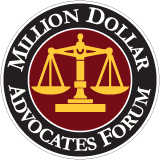
What Is Nursing Home Abuse?
Both intentional acts and failures to act by caretakers at a nursing home can be considered abuse. There are multiple categories of nursing home abuse that can make a victim eligible to file a legal claim. When reviewing these categories, it’s important to remember that nursing home abuse differs from nursing home neglect.
Physical Abuse
This involves a caretaker hurting a nursing home resident. Any conduct that intentionally causes physical harm to a resident is physical abuse. Physical abuse can consist of the following:
- Pushing,
- Slapping,
- Pinching,
- Kicking,
- Punching, and
- Misusing restraints.
If you believe your loved one is experiencing physical abuse, you should immediately report the abuse to Adult Protective Services or Texas Health and Human Services. If you can, you should remove your loved one from that facility as soon as possible. The Garland nursing home abuse lawyers at Hartley Law Firm can help you report nursing home abuse and plan your next steps.
Sexual Abuse
Sexual abuse refers to any sexual activity that a resident does not consent to. Forms of sexual abuse include:
- Explicit photography,
- Unwanted touching,
- Rape, and
- Coerced nudity.
Make sure that you look out for any possible signs of sexual abuse when you visit, such as bruises, bloodied clothing, and behavioral changes. If you believe your family member has experienced sexual abuse, you should report the abuse immediately. Also, make sure that you seek medical treatment for your loved one. The experienced nursing home abuse lawyer at Hartley Law Firm can help you protect your loved one’s rights.
Mental Abuse
Mental abuse is also known as emotional abuse. It can include any acts by a caretaker that cause psychological harm. Mental abuse can be committed by using non-verbal conduct or verbal abuse. Non-verbal mental abuse can consist of the following:
- Isolating the patient from family or other residents;
- Preventing the resident from going outside;
- Moving the patient’s assistive devices, such as a wheelchair;
- Hiding their items to disorient them,
- Limiting their ability to get food or water; and
- Keeping them from accessing a restroom.
Verbal abuse of a nursing home resident can include the following behaviors:
- Shouting at a resident,
- Mocking the resident,
- Threatening the resident,
- Ignoring the resident’s concerns,
- Insulting the resident,
- Humiliating or shaming the resident,
- Blaming the resident, and
- Being insensitive to a resident.
It is critical that you contact a lawyer if you suspect abuse is taking place. An experienced attorney can help you investigate further and can assist you in filing a nursing home abuse lawsuit.
Financial Abuse
Financial abuse involves improper use of a nursing home resident’s money, property, or assets. This can include stealing money or property or defrauding a resident. Some signs of financial abuse in a nursing home include:
- Powers of attorney the resident does not recognize,
- ATM withdrawals by a resident who has not used an ATM card, and
- A resident bringing other individuals with them to the bank.
This type of abuse may not be as obvious as physical abuse. It can be helpful to keep an eye on your loved one’s property and accounts so that you can more easily spot suspicious activity.
Common Warning Signs of Nursing Home Abuse
It is vital that you keep an eye out for common signs that a resident may be experiencing nursing home abuse. Remaining vigilant will help you remove your loved one from their nursing home and take other protective actions as soon as possible. Evidence of physical abuse involves the following:
- Broken bones,
- Cuts and lacerations,
- Bruises or burns,
- Bedsores,
- Infections,
- Facial injuries,
- Dental injuries,
- Dehydration or malnutrition, and
- Unexplained sexually transmitted diseases (STDs).
Other signs of nursing home abuse include:
- Lack of cleanliness or bad hygiene;
- Changes in sleeping or eating habits;
- Behavior such as thumb-sucking or nail-biting;
- Suicidal thoughts or self-harming behaviors; and
- A rapid shift in personality, such as anger or sadness.
If you believe your loved one is showing any of these or other signs of abuse, Hartley Law Firm is here to help you.
How We Can Help You
At Hartley Law Firm, our knowledgeable attorneys can help you investigate nursing home abuse and hold the wrongdoers accountable. Our attorneys can gather evidence, build a strong nursing home abuse case, and advocate on your loved one’s behalf so that you can focus on helping them recover. We are fighters and are ready to provide the aggressive representation you need. Contact us today to schedule a free consultation.








